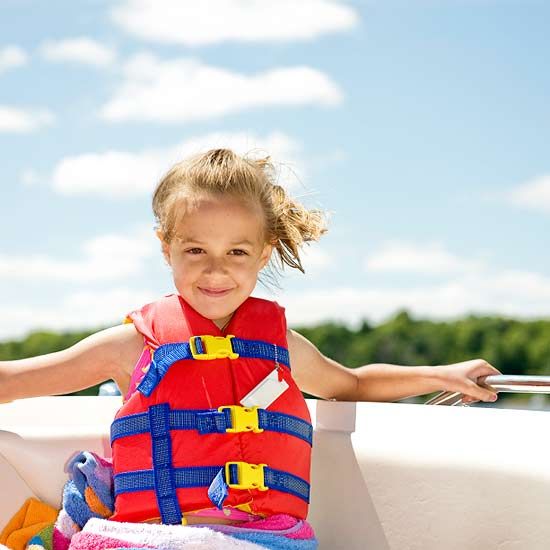SAFE BOATING TIPS
From The National Safe Boating Council
Boat Responsibly and Wear It!
The National Safe Boating Council would like to remind you to “Boat Responsibly and Wear I t!” “Boat Responsibly” by being alert and careful when taking out your boat, making sure you are prepared and always remember to “Wear I t”! Wear you r life jacket every time you are on the water. An accident ca n happen very quickly and unexpectedly so you must be geared up i n order to help yourself and you r passengers on board.
According to the most recent U.S. Coast Guard statistics, over two-thirds of fatal accident victims drowned. Out of those who drowned, approximately 90% we’re not wearing a life jacket. There are so many different types of life jackets today that are smaller and more comfortable; it’s much easier to “Wear It!” at all times. Life jackets are part of the gear stylish and knowledgeable boaters wear. Be a role model! Develop the Life Jacket habit!
Know the Navigation Rules
[Nautical Rules of the Road)
Knowing the nautical rules of the road is important for all boaters. Knowing what to do when meeting, crossing or over ta king another boat can prevent costly damage to your boat, personal injury or even loss of life. Whenever you believe there is a threat of collision you should slow down, stop or steer away from the situation i n question. Maintaining a proper lookout and a safe speed are all a part of the navigation rules and should be an important part of boat operation.
Stay Sober While Boating
It’s dangerous to operate a boat when drinking. Operating a boat under the influence of alcohol or d rugs is illegal i n all states and is a violation of Federal law. An operator with a blood alcohol content about .08 (equivalent to consuming five beers i n one hour for the average 180-lb. male) – is ten times more likely to die i n a boa ting accident t ha n an operator with zero blood alcohol level.
Be Aware of Carbon Monoxide
Al l boat engines produce Carbon Monoxide (CO)-an odorless, colorless, poisonous gas that can kill you i n a matter of minutes. Boaters are killed every year because of improper cabin ventilation, poorly maintained equipment, and careless behavior. You do not have to be inside the boat to be at risk. Boaters have died from exposure on the swim platforms of their boats and i n other areas where CO exhaust may accumulate or be emitted. Be aware of the early symptoms (irritated eyes, headache, nausea, weakness, and dizziness). Use CO detectors on your boat and stay off the swim platform when the engine (or generators) are running.
Take a Safe Boating Course
Seventy percent of recreational boating accidents are caused by operator factors -such as failure to pay attention, carelessness, recklessness, inexperience, excessive speed, and failure to watch for hazards.
Boating safety courses are available, inexpensive, and quick- a great way for you to learn safety and the rules of the road.
Get Your Boat Checked
The Coast Guard Auxiliary and United States Power Sguadrons® offer a free Vessel Safety Check CVSC). Contact www.vesselsafetycheck.org for information.
For more information on boating safety, please visit the National Safe Boating Council at www.safeboatingcouncil.org. The National Safe Boating Council wishes you safe and enjoyable boating and reminds you to “Boat Responsibly and Wear I t!”

